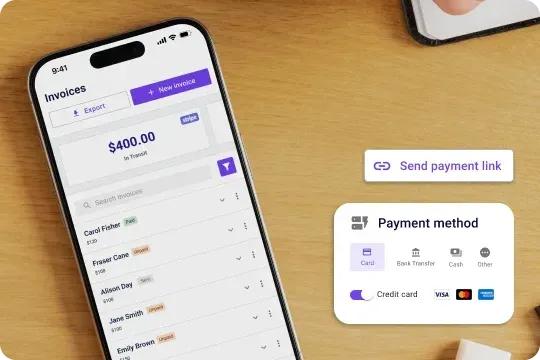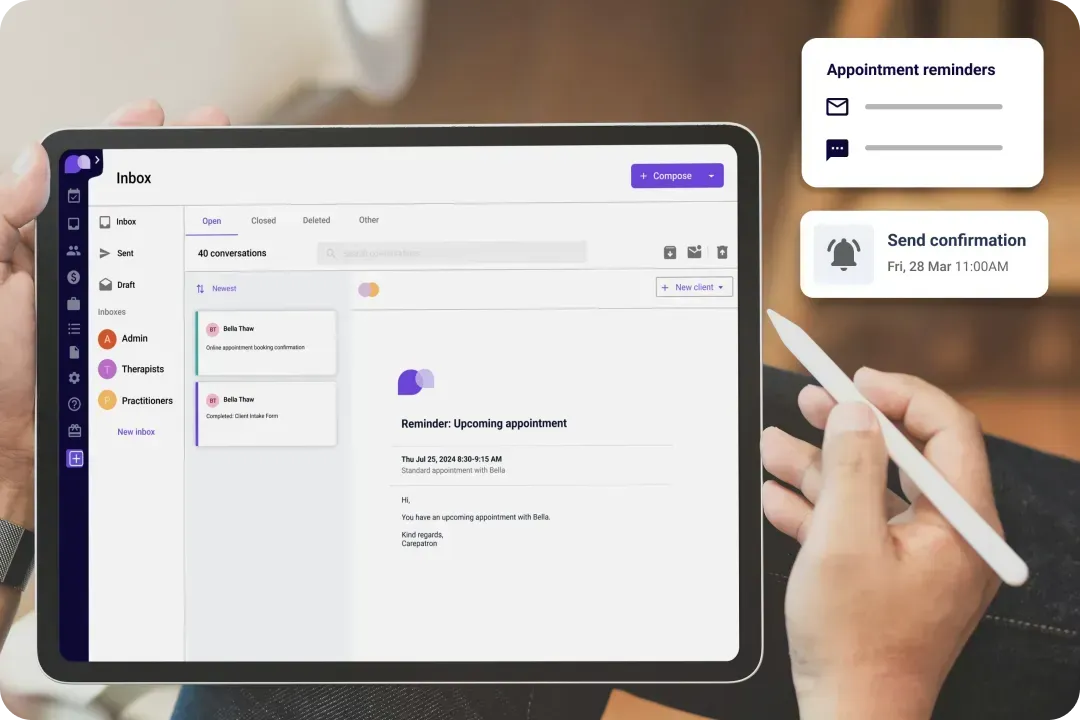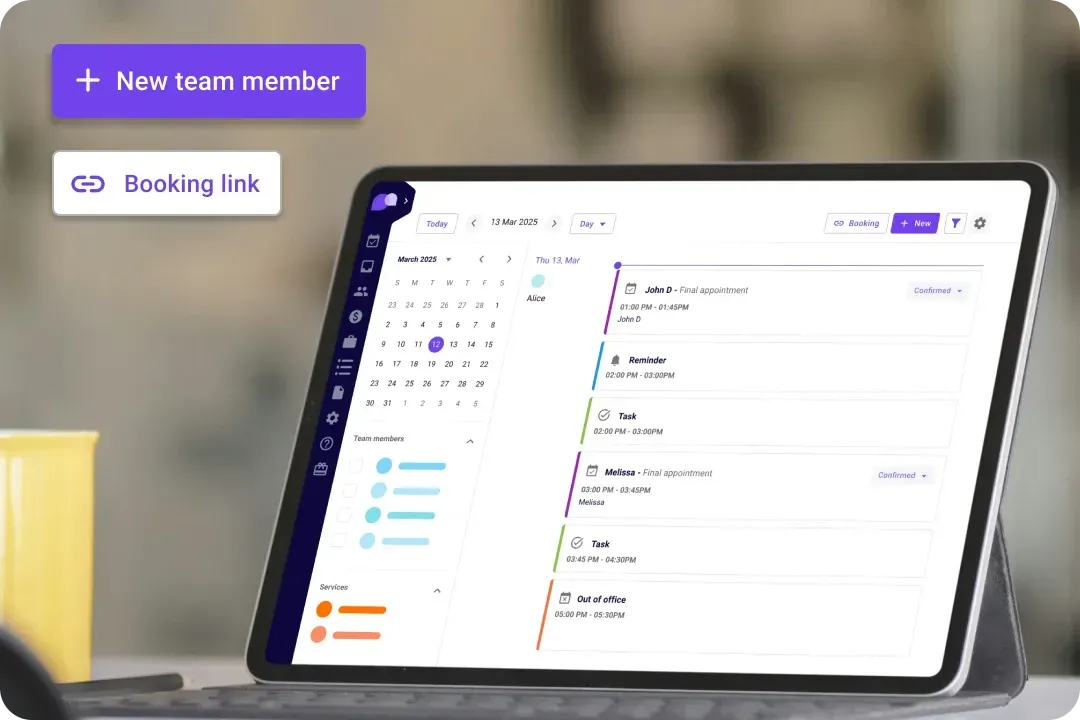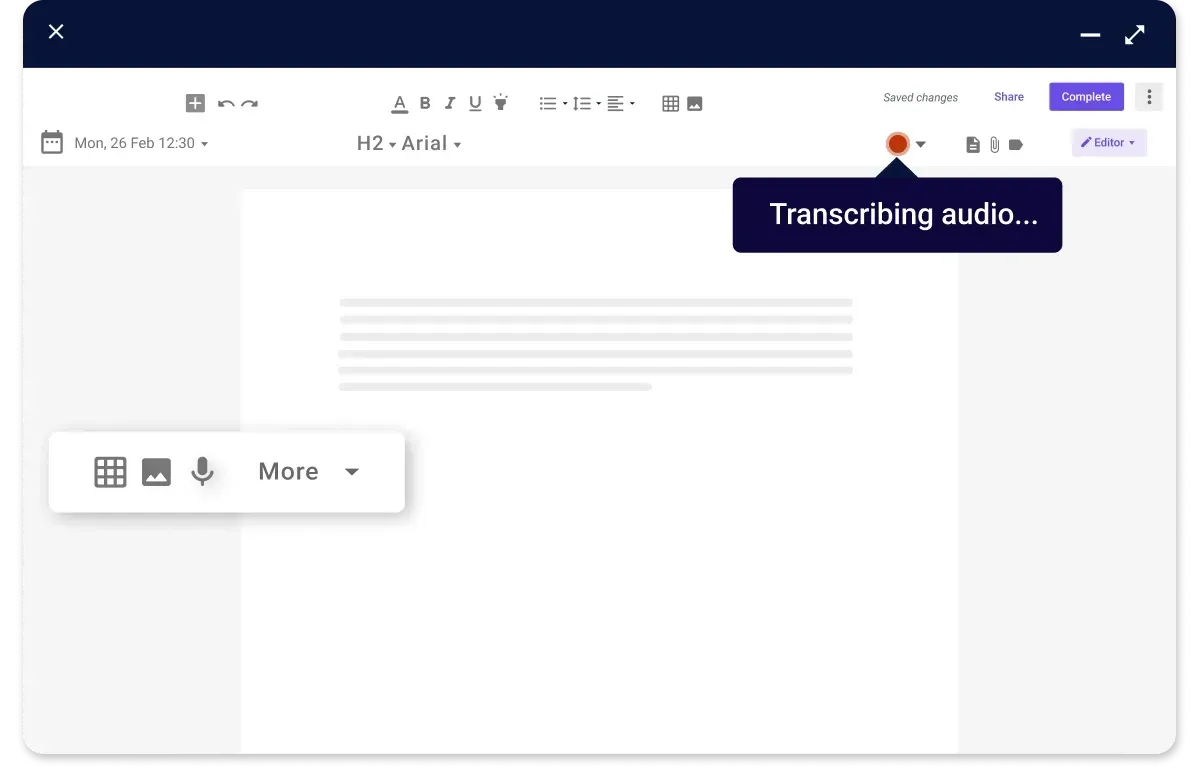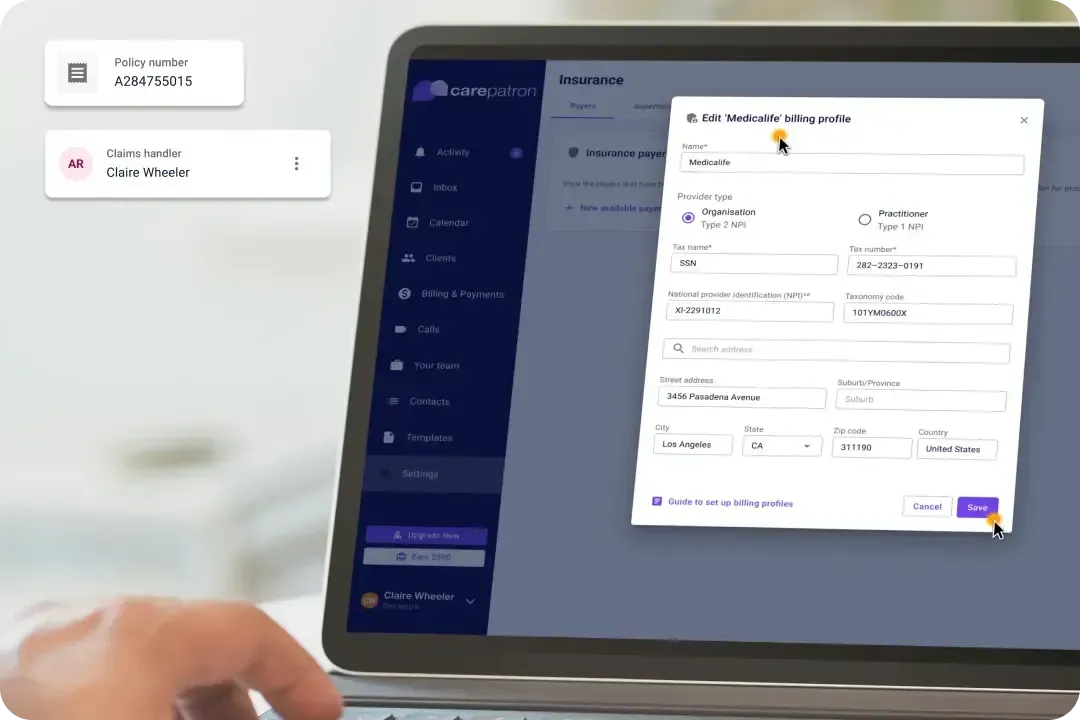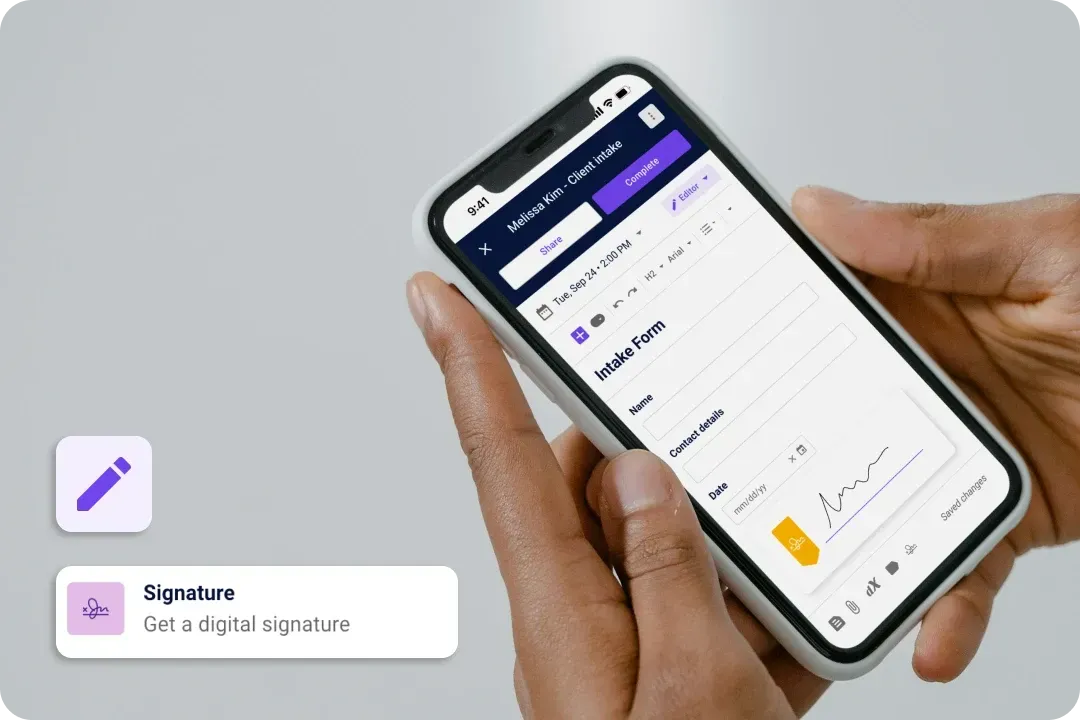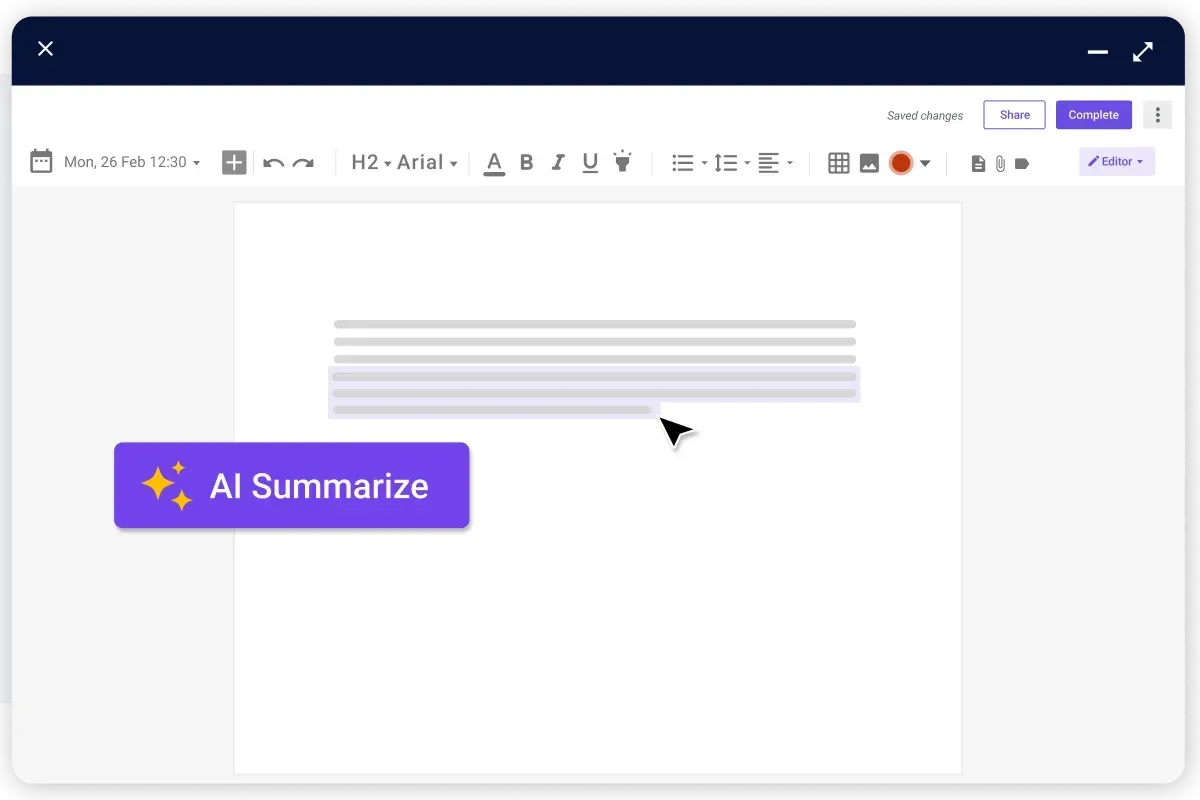Enterprise-grade privacy & security
Stay secure and efficient. Carepatron’s healthcare compliance software helps you manage appointments, admin tasks, and client records all in one easy-to-use platform.
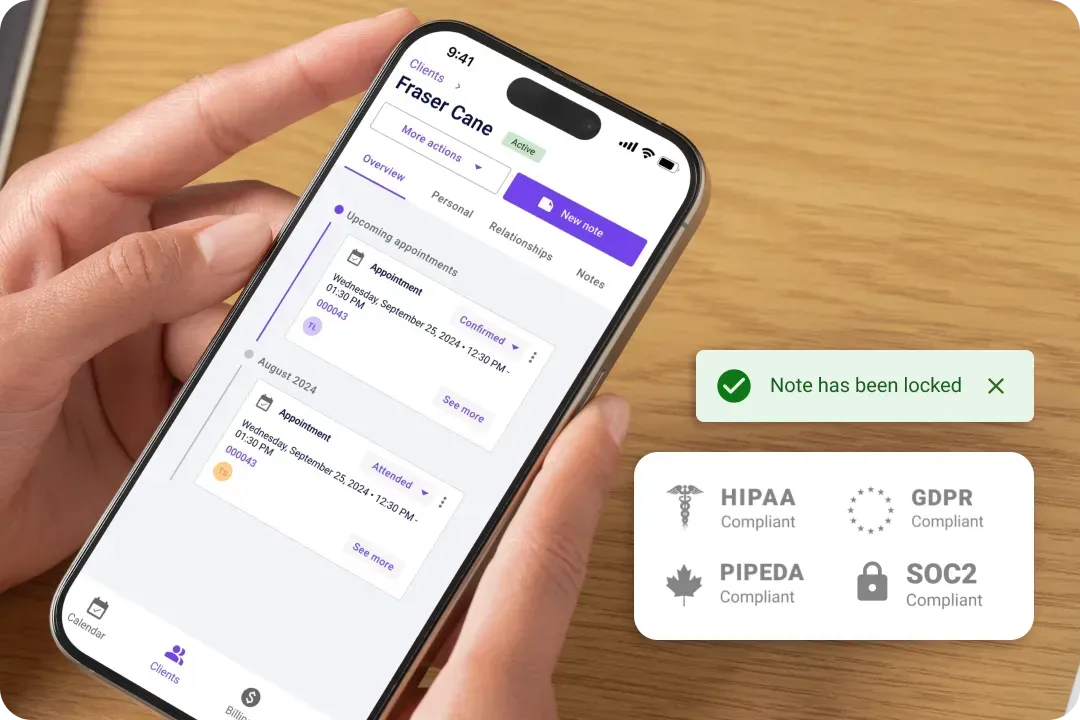

The healthcare compliance software for your healthcare team
Carepatron’s healthcare compliance software makes your team’s job easier. Our healthcare compliance software takes the stress out of complex processes, helping your team stay ahead, efficient, and fully compliant.

Multi-location accessibility
Access patient data and manage tasks from any location, ensuring your team stays connected, even across different time zones. With Carepatron, geographic boundaries become irrelevant as our software empowers your healthcare team with multi-location accessibility.

Effortless scheduling
Simplify appointment management, allowing practitioners to optimize their schedules and improve overall workflow. Carepatron's effortless scheduling feature saves time and allows practitioners to focus on delivering quality care.

Customizable compliance solutions
Tailor our software to your unique compliance needs, ensuring your healthcare team operates seamlessly within regulatory frameworks. With Carepatron, customize compliance solutions according to your specific requirements.

Carepatron’s medical compliance software features
Compliance doesn’t have to be a chore. Automate updates, streamline documentation, and stay aligned with industry standards so your practice runs smoothly and stays ahead.

Secure data management
Safeguard patient information with robust encryption, ensuring compliance with the highest data protection standards. Our secure data management meets and exceeds industry benchmarks, providing a foundation of trust and confidence.

Automated reporting
Generate detailed compliance reports effortlessly, saving time and ensuring accuracy in regulatory documentation. Carepatron's automatic reporting feature streamlines the reporting process and enhances the precision of compliance documentation.

Audit trail transparency
Track every action within the system, providing an audit trail for accountability and compliance verification. With Carepatron's emphasis on transparency, the audit trail feature ensures a thorough record of all activities.

Real-time compliance alerts
Stay informed with instant alerts for compliance deadlines, helping practitioners proactively manage regulatory requirements. Carepatron's real-time compliance alerts go beyond passive notifications, actively supporting practitioners in staying ahead of deadlines.
Trusted by more than 100,000 practitioners

"It’s so easy to connect with my staff"
CLAIRE, PHYSICAL THERAPIST

"Carepatron saves me 2 hours everyday"
AEGEUS L, HEALTH COACH

"My team loves how simple it is to use"
ANDREA MAGNUS, PRACTICE MANAGER

How does our medical compliance software help you?
Carepatron’s software is your practice’s strategic ally. Its key, intuitive features simplify management, ensure compliance, and boost efficiency for healthcare professionals.

Efficiency boost
Streamline administrative tasks, saving time for patient care. Carepatron's commitment to efficiency goes beyond simple task automation; it transforms your practice management, allowing healthcare professionals to focus on what matters most – delivering exceptional patient care.

Error reduction
Minimize compliance errors with automated documentation and alerts. Carepatron's advanced error reduction mechanisms automate documentation and actively identify and alert practitioners to potential compliance issues.

Regulatory adherence
Stay up-to-date effortlessly with real-time updates and seamless integration of regulatory changes. Carepatron's dedication to regulatory adherence ensures that your practice remains current with the latest industry standards.
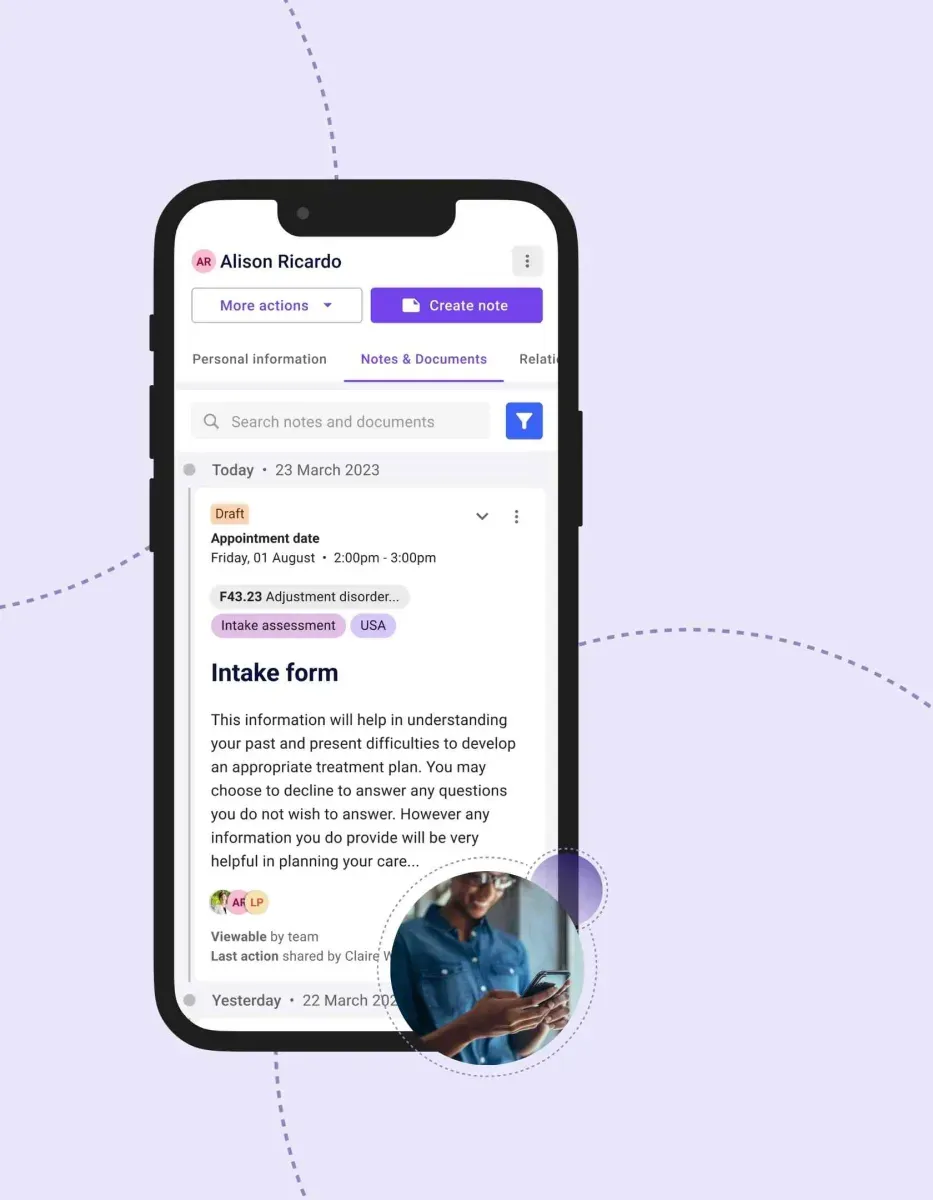
The compliance solution for all healthcare teams
From private practices to large healthcare teams, Carepatron’s compliance solution fits seamlessly into any workflow, making it easy for healthcare teams of all sizes to streamline workflow and ensure standards are met.

Primary care providers
Streamline daily operations for general practitioners, optimizing appointments and compliance workflows. Carepatron's features are crafted to align seamlessly with the demands of primary care, facilitating efficient compliance processes.

Specialists and surgeons
Enhance efficiency in specialized practices with customizable features, supporting complex compliance requirements. Carepatron recognizes the intricacies of technical, medical practices and offers customizable features to meet the unique compliance demands of specialists and surgeons.

Dental practices
Tailor the software to the specific needs of dental teams, from appointment scheduling to maintaining regulatory standards. Carepatron understands the nuances of dental practices and offers a tailored solution, enabling dental teams to efficiently manage appointments while adhering to regulatory standards.
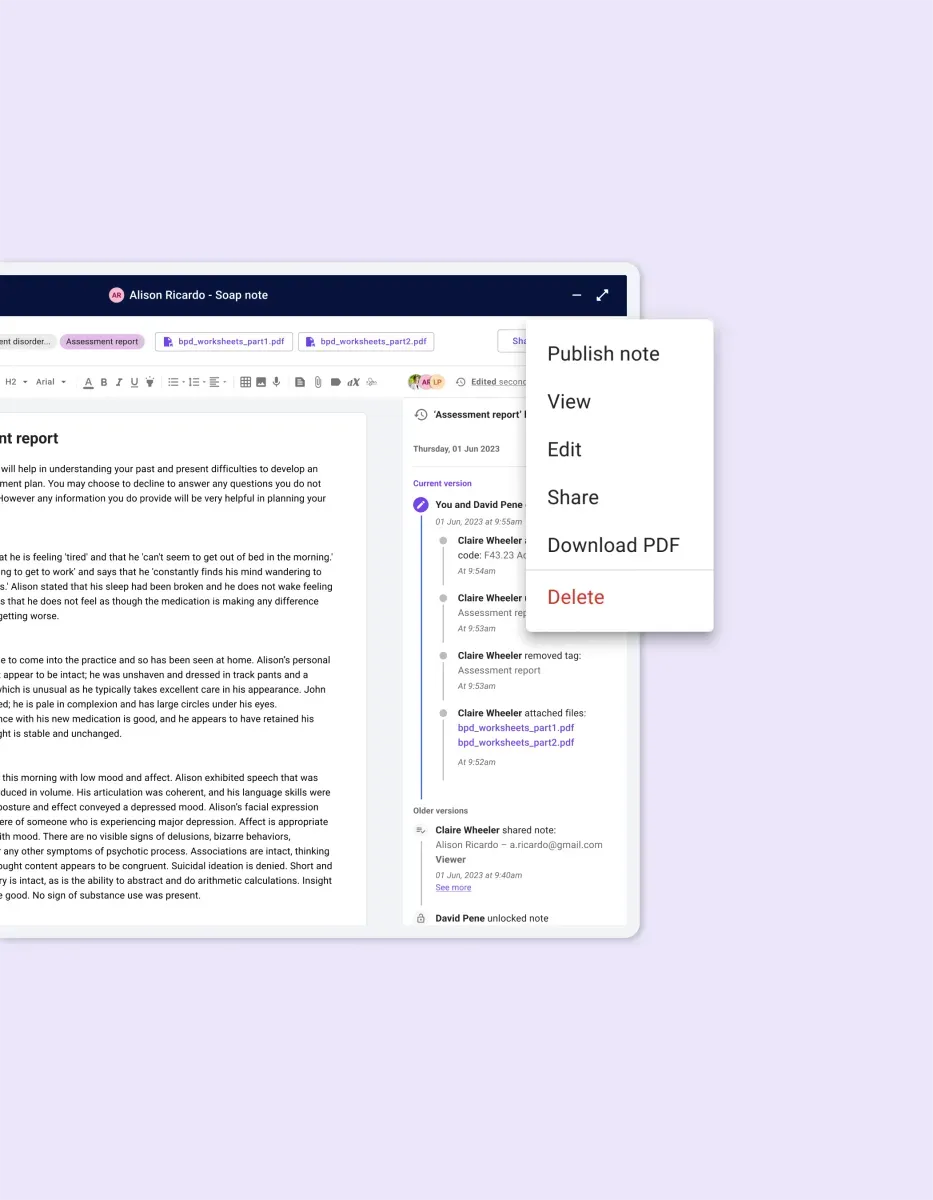
How to use our free healthcare compliance management software
Get started in minutes with Carepatron’s free compliance software. Use this guide to easily integrate Carepatron’s free software into your practice and enjoy seamless management from day one.

Step-by-step setup
Easily configure the software to match your practice's unique needs, ensuring a tailored experience. Our step-by-step setup guide simplifies the configuration process, allowing you to customize the software according to your specific requirements, ensuring a personalized and efficient experience.

Automated workflows
Take advantage of built-in automation to streamline compliance tasks, saving time and reducing manual effort. Carepatron's automated workflows empower your practice by handling routine compliance tasks, enabling you to focus on more critical aspects of patient care while improving overall efficiency.
Frequently asked questions
EHR and practice management software
Get started for free
*No credit card required
Free
$0/usd
Unlimited clients
Telehealth
1GB of storage
Client portal text
Automated billing and online payments







